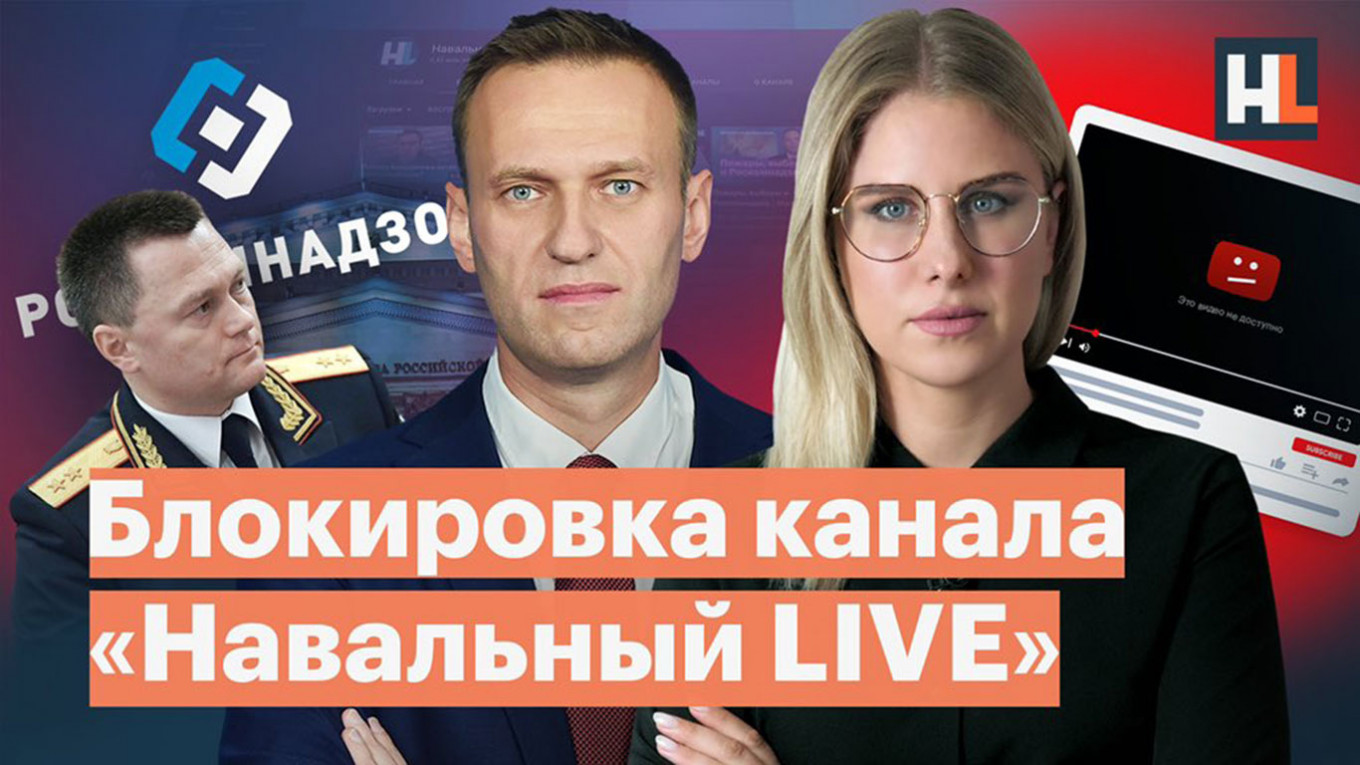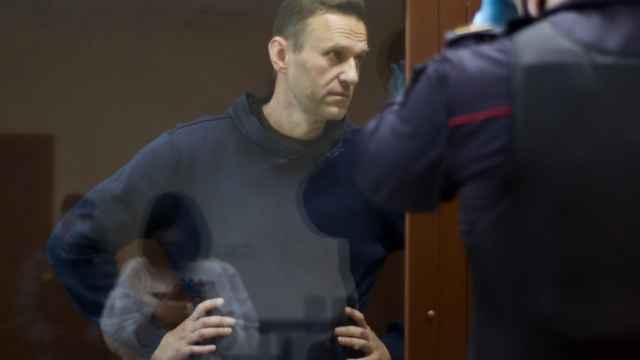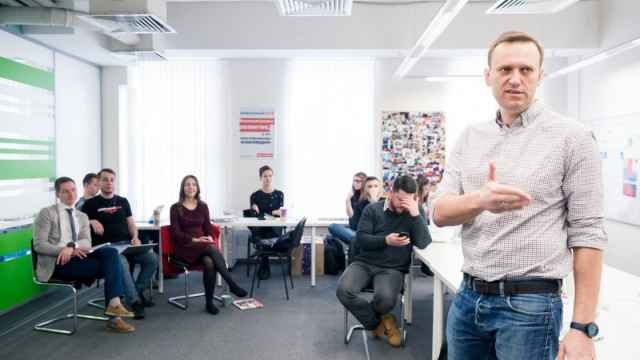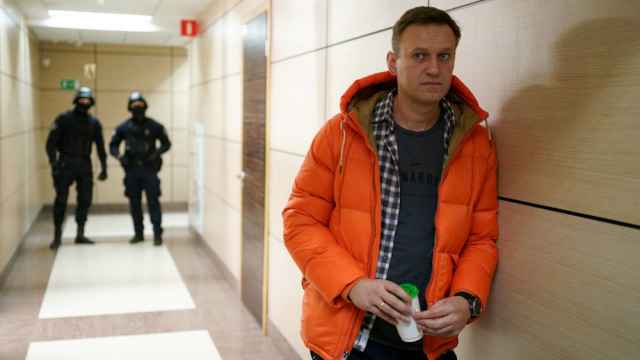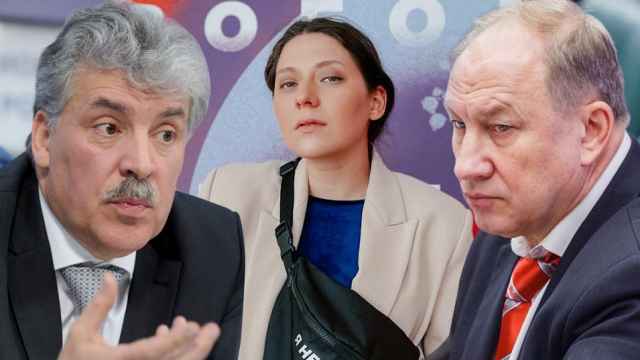Russian authorities have demanded that YouTube block jailed Kremlin critic Alexei Navalny’s popular channel that has published viral investigations into corruption and fueled anti-government protests in recent years, his senior ally said Friday.
The request comes less than a week after Russia’s internet regulator Roskomnadzor blocked 49 Navalny-linked websites and sought to ban his associates’ Twitter accounts. A Moscow court last month declared Navalny’s activist and political network “extremist,” effectively banning their activities ahead of high-stakes elections this fall.
“Navalny Live,” which has nearly 2.5 million subscribers, received an email from YouTube late Monday notifying it of Roskomnadzor’s request to block the entire account, Navalny’s associate Lyubov Sobol said.
Sobol, a lawyer, producer and content creator at “Navalny Live” who ended her campaign to run for parliament after the “extremist” designation, said Roskomnadzor also asked YouTube to block her personal channel, which has 60,000 subscribers.
The state regulator earlier this week demanded that YouTube block four other Navalny allies’ channels.
Roskomnadzor has advocated for all Navalny-linked social media accounts to be blocked because they contain "calls to carry out extremist activity and mass unrest.”
Sobol said she plans to dispute Roskomnadzor’s request both with YouTube’s administrators and in Russian courts.
She claims that the watchdog’s request to block the channels is illegal because the Russian court order has not yet entered into force and because only specific content is subject to removal.
YouTube and tech giants like Twitter and Facebook are also facing a series of multi-million-dollar fines on charges of failing to remove content deemed illegal in Russia, as well as for not localizing user data.
Rights groups see the Navalny “extremist” ruling — along with the blacklisting of independent news sites and foreign groups as “undesirable” and “foreign agents” — as part of the Kremlin’s efforts to stifle dissent ahead of parliamentary elections this September.
A Message from The Moscow Times:
Dear readers,
We are facing unprecedented challenges. Russia's Prosecutor General's Office has designated The Moscow Times as an "undesirable" organization, criminalizing our work and putting our staff at risk of prosecution. This follows our earlier unjust labeling as a "foreign agent."
These actions are direct attempts to silence independent journalism in Russia. The authorities claim our work "discredits the decisions of the Russian leadership." We see things differently: we strive to provide accurate, unbiased reporting on Russia.
We, the journalists of The Moscow Times, refuse to be silenced. But to continue our work, we need your help.
Your support, no matter how small, makes a world of difference. If you can, please support us monthly starting from just $2. It's quick to set up, and every contribution makes a significant impact.
By supporting The Moscow Times, you're defending open, independent journalism in the face of repression. Thank you for standing with us.
Remind me later.


